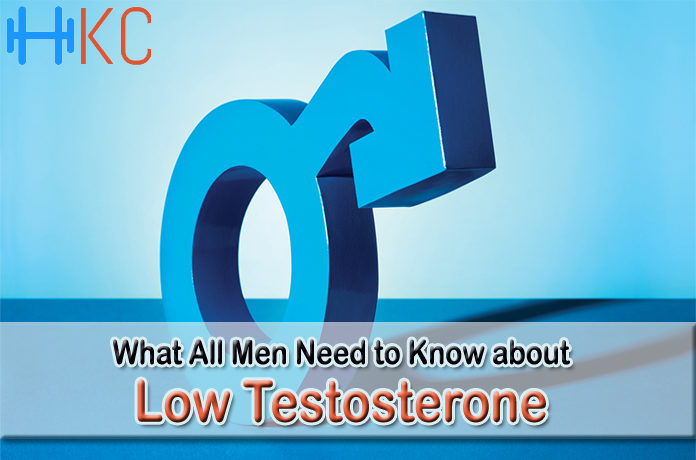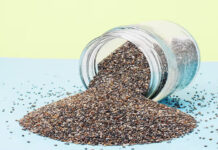“Low testosterone is a rather common men’s health problem, but it is one which most men are not willing to talk about. Since testosterone is the male hormone, it is responsible for all the functions that make men feel and look masculine. As such, it can be difficult for men to recognize that they have problems with this hormone, and it is even more difficult for them to seek medical help. However, since this hormone is responsible for the overall well-being of men, it is essential to keep it within normal levels and to seek medical help in case of an unbalance. In the following lines, we will discuss some of the symptoms and causes of low testosterone and we will provide you with some advice on how to deal with this problem.
As the debate over safety and effectiveness smolders, the testosterone business is still booming. In 2013, 2.2 million American men were on prescription testosterone, and 80% of them were ages 40 to 74. Some suffer from verifiable medical problems that cause testosterone levels to plummet, like malfunctioning testes or pituitary gland tumors. No one disputes that these cases of “classical hypogonadism” warrant testosterone therapy (especially if the man starts to lose his hair and have hot flashes).
However, for most men on TRT, this is not the case. “The vast majority of men getting testosterone prescriptions today are middle-aged and older men with testosterone levels at the low end of the normal range, or just slightly below the low end of the normal range,” says Dr. Shalender Bhasin, a prominent testosterone researcher at Harvard-affiliated Brigham and Women’s Hospital. “It’s for that population that we don’t have clear evidence of either benefit or safety.”
Safety concerns
Concerns about whether testosterone supplements are safe for the heart recently moved the FDA to require stronger warning labels on these products. But overall, the evidence for long-term risks is mixed. Some studies have found that men on testosterone have fewer heart attacks, strokes, and deaths from heart disease. Other studies have found a higher cardiac risk.
Frustratingly, there has been no study to date designed to conclusively answer this basic question. “There is a hint that [men] may be at increased cardiovascular risk, but it’s not conclusive by any means,” Dr. Bhasin says.
What is low testosterone?
Testosterone is produced by both men and women, but it is particularly important for men, and it is men who are more likely to suffer from low testosterone, also known as low-T. For men, it is normal and healthy for testosterone levels to range from 300 nanograms per deciliter to 1000, even 1200 nanograms per deciliter. This hormone peaks during puberty, when the body requires more testosterone to support the body’s transition from a boy to a man. When testosterone levels are under 300 nanograms per deciliter, it can severely affect the development of boys and young men, and it also severely affects adult men.
What causes low-T?
There are numerous causes which can lead to this hormonal unbalance. It can be an inherit medical condition, or it can be caused by other health problems such as infections, diabetes or other hormonal unbalances. Poor lifestyle choices can also decrease testosterone levels, and it is very common for sedentary and obese men to suffer from low-T.
Low-T warning signs
The most obvious symptoms of low testosterone are sexual dysfunctions. From a decreased libido, to the inability to have or maintain an erection, low testosterone can affect a man’s sex life in numerous ways. However, there are also other, more subtle symptoms that can indicate hormone problems such as a change in sleep patterns, anxiety or other forms of emotional distress, weight gain, decreased strength, decreased muscle mass or low bone mass. When experiencing these symptoms, one should seek medical help as soon as possible. A simple blood test can easily determine if these symptoms are indeed caused by a testosterone deficiency.
Treatment options
Usually, the right treatment is the one that addresses the cause of the problem. For example, in case of an unhealthy lifestyle, testosterone levels can be brought back to normal simply by losing weight and being more active. Strength exercises are particularly effective for boosting testosterone levels. A diet rich in zinc, vitamin D and healthy fats can also be very helpful. Moreover, reducing the daily stress can also have a positive impact on a man’s health.
If natural remedies fail, or if testosterone levels are way below normal limits, the best solution is testosterone replacement therapy. Testosterone therapy usually consists in synthetic hormones, which are taken as injections or applied as gels or skin patches. There are different types of synthetic hormones, so it is important to choose a clinic that uses quality hormones for the testosterone therapy.
How safe and effective is the therapy?
The therapy is quite safe, but since each body is different, some side effects can be experienced from time to time. Side effects can be something as minor as acne, or as serious as blood clogs. When undergoing this therapy, men should get regular blood tests, to ensure that they don’t run the risk of blood clogs.
As far as efficiency goes, hormone therapy is efficient in about two thirds of the patients. When the therapy fails, it usually means that there is an unknown health problem which is causing the low hormones, and this problem needs to be addressed before continuing with the therapy.
What should men do?
It’s especially important for men experiencing possible signs of testosterone deficiency to get a thorough evaluation before opting for a supplement. The American Endocrine Society guidelines for testosterone use, which Dr. Bhasin helped to create, lay out the basics of good practice.
The guidelines, released in 2010, highlight a number of clear-cut “red flags” of hypogonadism, including low libido, erectile dysfunction, low sperm count, loss of body hair, and hot flashes. Additional, more general signs that might suggest hormone deficiency are poor concentration and memory; feeling sad or blue; insomnia; decreased energy, motivation, initiative, or self-confidence; decreased muscle mass and increased body fat and diminished physical or work performance.
However, most of these symptoms of testosterone deficiency are also common in older men who have normal testosterone levels, so “low T” cannot be diagnosed based solely on symptoms. You also need testing to confirm that your testosterone is low. But the tests themselves can be unreliable and tricky to interpret, so testosterone blood levels need to be evaluated carefully, with tests on more than one day, as well as tests for levels of other hormones related to testosterone. “The workup is not that expensive,” Dr. Bhasin says. “It’s not like it costs thousands of dollars. Despite that, testosterone is being prescribed somewhat indiscriminately.”
Indeed, a study in the September 2015 issue of the journal Medical Care found troubling signs of improper prescribing testosterone in the VA medical system. Of nearly 112,000 new testosterone prescriptions given to men between 2009 and 2012 at VA outpatient clinics, 16.5% of men got no testosterone measurement at all. Worse, some men got testosterone prescriptions even though they had medical conditions, like prostate cancer, that would usually bar the use of hormone supplements.
“Men want a thoughtful discussion of the risks and benefits, and physicians can guide them appropriately based on the guidelines” Dr. Bhasin says. “Patients come to you for help with their symptoms, but I’ve never had a situation in which they walked away because I declined to give them testosterone.”














